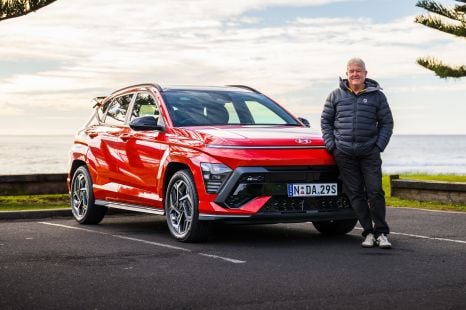

Anthony Crawford
Hyundai Kona N Line: Redefining small SUVs
3 Months Ago

News Editor
Tesla has been forced to halt deliveries of its updated ‘Highland’ Model 3 in Australia as it resolves a compliance issue, but says it expects deliveries to resume within weeks.
It’s understood the updated version of the Model 3 which recently began being delivered to Australian customers doesn’t have an accessible rear centre top-tether point, in breach of Australian Design Rules (ADRs).
“We regret to inform you that deliveries of Model 3 in Australia will be paused from close of business 17 January 2024,” reads the notification sent to customers.
“This pause is related to a technical compliance matter that we are working closely with the relevant authorities to resolve.
“We understand that these changes may lead to a delay in the delivery and want to assure you that resolving this matter is our top priority. We expect to recommence deliveries within the coming weeks.”
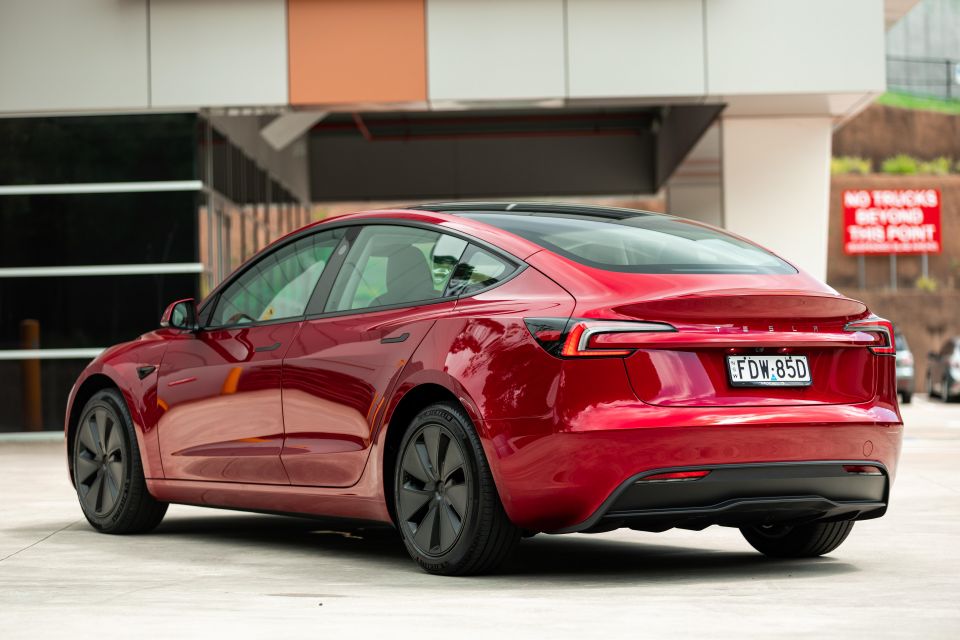
It’s unclear what impact there will be to vehicles already delivered, and whether a recall will be forthcoming. The first examples reached customers in December.
“The Department of Infrastructure, Transport, Regional Development, Communications and the Arts is aware of concerns regarding the child restraint anchorage points in the 2024 Tesla Model 3 and is looking into this matter,” a Department of Infrastructure, Transport, Regional Development, Communications and the Arts spokesperson told CarExpert this month.
“Road safety is a top priority of the Australian Government. That is why we have legislated road vehicle standards in place to ensure all road vehicles, both new and used, being provided to the Australian market for the first time meet critical national standards for safety, security and emissions.”
This is despite the updated Model 3 being certified as a five-seater vehicle according to Australian government approval documents.

Uniquely, Australian Design Rules (ADRs) stipulate any rear seat with a seatbelt must feature a top-tether point for a child seat, though ADR 34 requires it to be more accessible based on the wording.
ADR 34.6.1 states that “clearance shall be provided around each ‘Child Restraint Anchor Fitting’ to allow latching and unlatching, without the use of tools, of the ‘Attaching Clip’ to the ‘Child Restraint Anchor Fitting’ when it is installed in the vehicle”.
The pre-update version of the Tesla Model 3 had a top-tether anchor point for the rear middle seat that could be accessed by a flap on the parcel shelf.
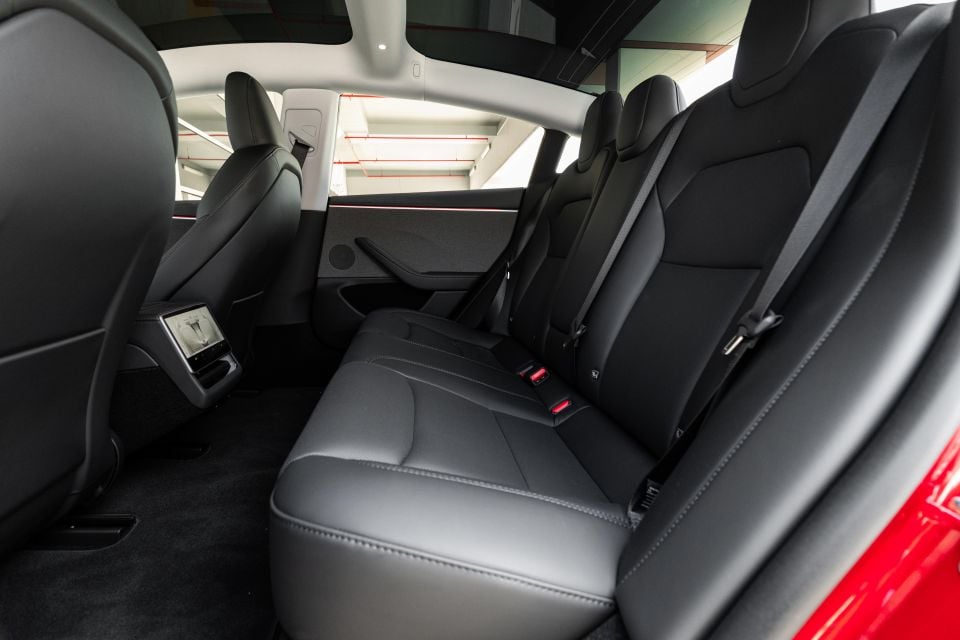
It’s understood the updated Model 3 does still have the rear middle top-tether anchor point but it can’t be accessed as there’s no flap on the parcel shelf.
It’s worth noting the updated Model 3 does have accessible top-tether points, as well as ISOFIX points, on the two outboard rear seats.
We have reached out to Tesla Australia in regard to this situation and will update this story if we hear back.
In 2022 the BYD Atto 3 was subject to the same technical compliance issue as its rear middle top-tether point couldn’t be accessed, with carpet on the seat back blocking it.
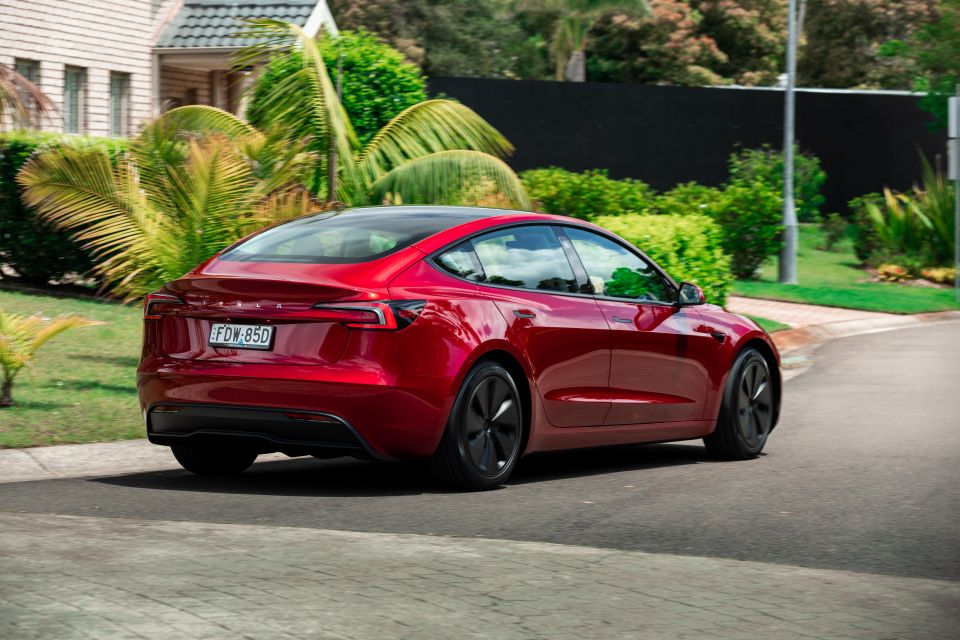
BYD’s local distributor EVDirect was forced to pause deliveries for several weeks until the problem was resolved. It also recalled already delivered examples to fix the issue.
Another potential option Tesla could enact is removing the rear middle seat belt of the updated Model 3 and reclassifying the electric sedan as a four-seater.
Honda made the decision to classify the current-generation HR-V as a four-seater rather than a five-seater in Australia due to there being no top-tether point for the rear middle seat.
While it didn’t explicitly say this compliance breach was the reason, safety authority ANCAP declined to carry over the pre-update Model 3’s five-star rating, leaving the updated model unrated for now.
MORE: 2024 Tesla Model 3 review MORE: Everything Tesla Model 3
Where expert car reviews meet expert car buying – CarExpert gives you trusted advice, personalised service and real savings on your next new car.
William Stopford is an automotive journalist based in Brisbane, Australia. William is a Business/Journalism graduate from the Queensland University of Technology who loves to travel, briefly lived in the US, and has a particular interest in the American car industry.


Anthony Crawford
3 Months Ago
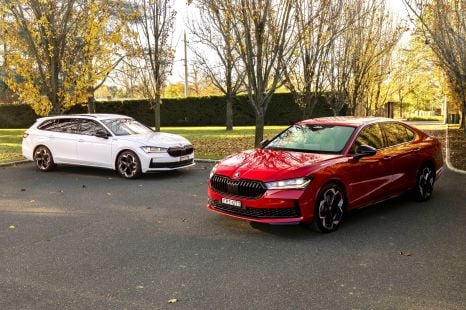

Max Davies
3 Months Ago
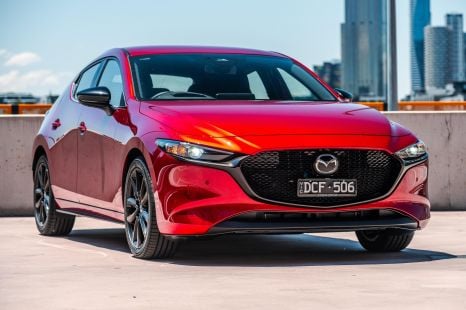

Josh Nevett
2 Months Ago
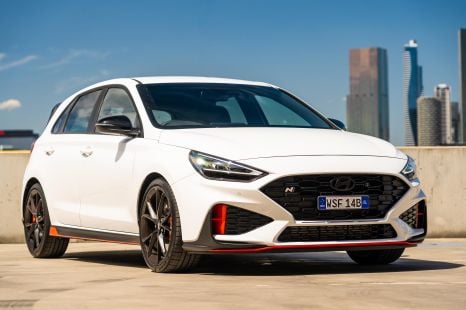

Josh Nevett
2 Months Ago
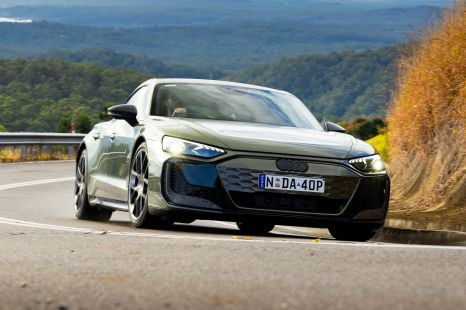

James Wong
2 Months Ago
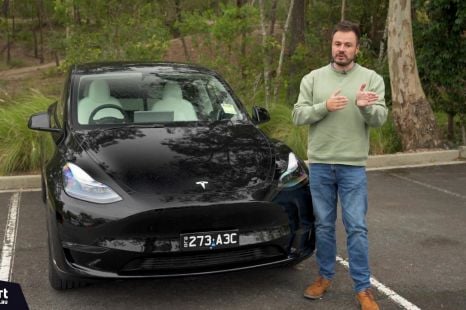

Paul Maric
11 Days Ago